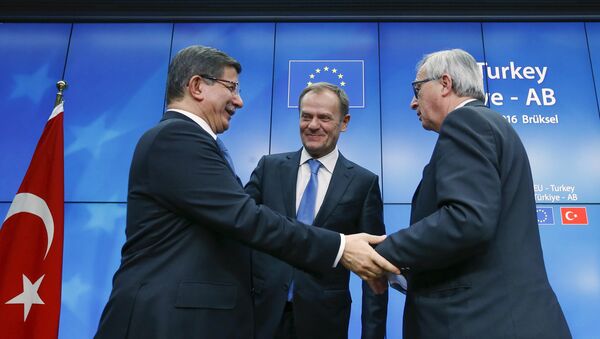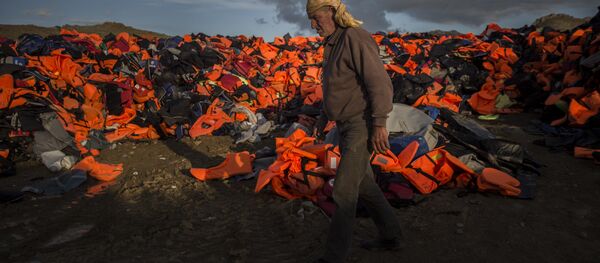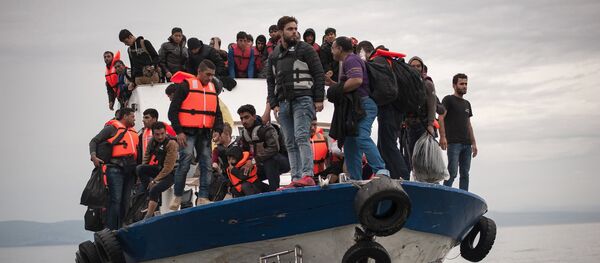Ankara and Brussels are discussing a plan according to which Turkey would receive €3 billion in exchange for assistance in dealing with the influx of refugees. However, in addition Turkey requested the faster implementation of a visa-free regime with the EU and the acceleration of accession talks to the bloc.
Turkey’s tough stance at the negotiations is linked to the Syrian conflict, it added. Ankara has been for long promoting the idea of a no-fly zone over its border with Syrian and a so-called "safe-zone."
"But Russia's ongoing military intervention in Syria makes a no-fly zone by the United States and the European Union too dangerous without Moscow's participation. Neither the United States nor Europe wants to risk a war with Russia," according to the article.
Therefore, Turkey is using the migrant crisis to pressure EU leaders to reach a compromise with Russia. According to Stratfor, the main obstacle for this is economic sanctions Europe has been applying to Moscow since the Ukrainian crisis broke out in 2014.
The authors also noted the growing number of those calling to lift the sanctions in Europe.
"Though some EU members have spoken against the sanctions, Germany has so far managed to keep the bloc united, and the different packages of sanctions have been extended every time they have expired. But this system is becoming harder to maintain," they wrote.
The "weakest links in the sanctions chain" are the countries most affected by the migrant crisis.
"Nations such as Italy, Greece and Hungary have expressed a desire for the quick lifting of sanctions. Those countries have major trade and energy ties with Russia, which means that easing sanctions could benefit them in multiple ways," the article read.




